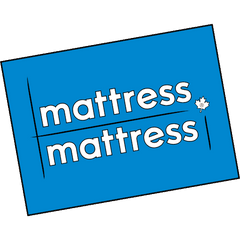A Guide to Buying Pillow Protectors
How important are pillow protectors?
- Pillows are collectors. When we sleep we bury our face into our pillow and we leave behind sweat, skin and hair cells, facial oil, and pathogens.
- Pillow protectors do what their name implies. A hypoallergenic pillow protector will keep your pillow fresh, clean, and dry, protecting it from unwanted bacteria and pathogens which thrive in warm, moist environments.
- Encasing your pillow in a waterproof pillow protector will help prevent the premature breakdown of pillow foams and fibers from exposure to body oil and perspiration, greatly increasing pillow life.
- Pillow protectors are generally so thin they don't alter pillow feel or comfort.
- Pillow protectors wick away moisture, creating a more comfortable sleep environment.
What's the science behind pillow protection?
And as sleep we shed skin and hair cells and perspire, losing as much as 1 to 2 pints of fluid a night. This makes for great living conditions for allergens such as dust mites. And as turn or roll over during sleep, minute particles of dust mite enzymes become airborne. These airborne particles easily enter the eyes, nose, mouth, and lungs, and when breathed in they can become lodged in the bronchi, causing inflammation, wheezing, and the development of allergic asthma.
You can kill dust mites by freezing your pillow, steaming it, dry cleaning it, or washing it in extremely hot water. Alternatively, you can buy synthetic or latex pillows that are hypo-allergenic (inhospitable to mites and other allergens).
We believe the best way to protect yourself from a major dust mite environment is to buy and use hypoallergenic pillow protectors that are designed to reduce or minimize the possibility of an allergic reaction from allergen triggers such as dust mites, smoke, perfumes, deodorants, mold and pet dander.
How do you choose the right pillow protector?
Today’s pillow protectors come in a variety of materials that can improve your sleep environment. Materials such as temperature neutral fabrics like Tencel, or fabrics such as Nylon that can provide a cooler sleep. Silver Ions can also be infused to effectively kill bacteria. And some pillow protectors even have air exchangers that allow the protector to breathe while still keeping out allergens.
In a nutshell, the best solution for keeping your pillows fresh and hygienic, and to create a safe and healthy sleep environment, is by using pillow protectors and washing them along with your sheets and pillowcases.










